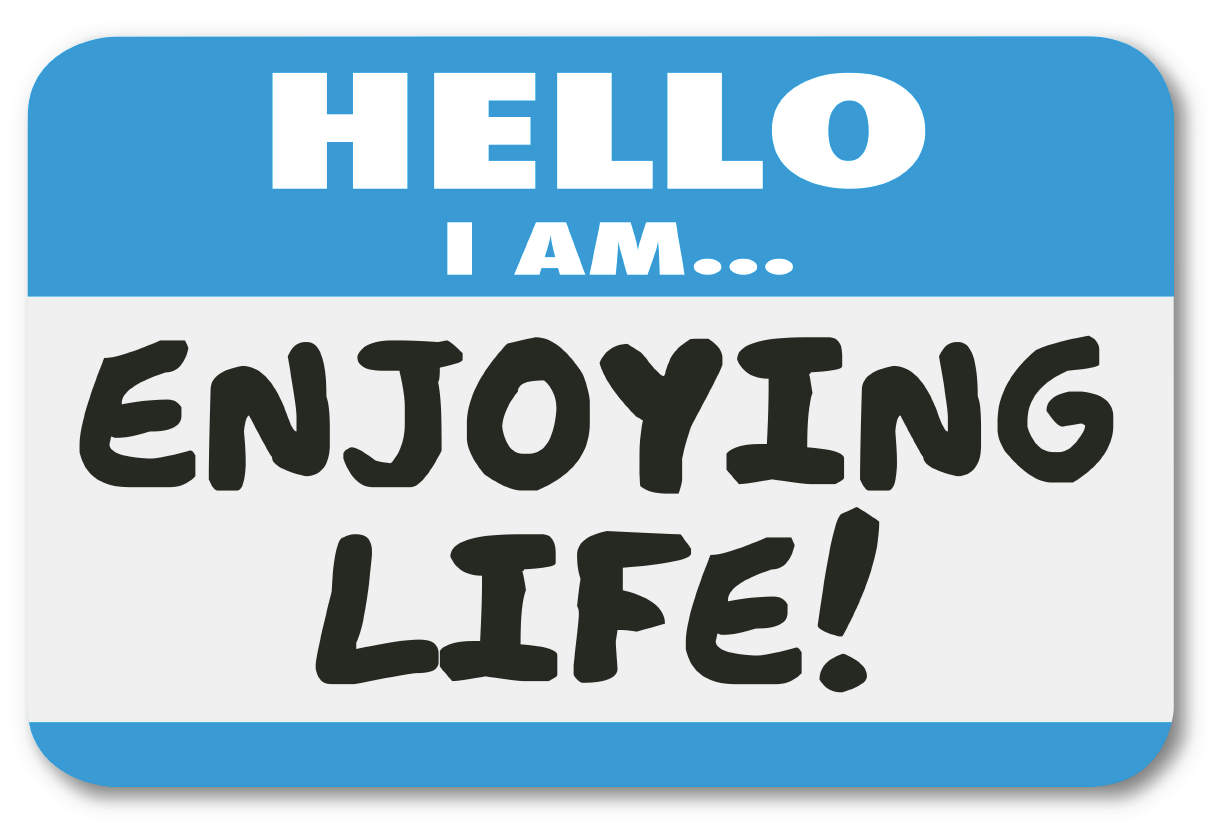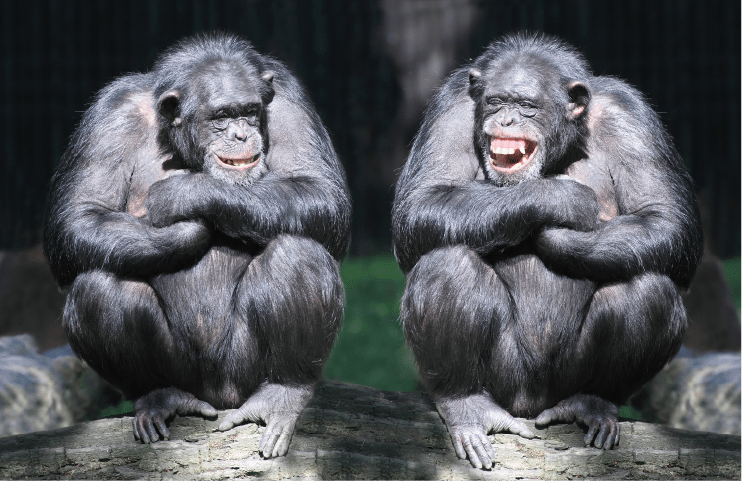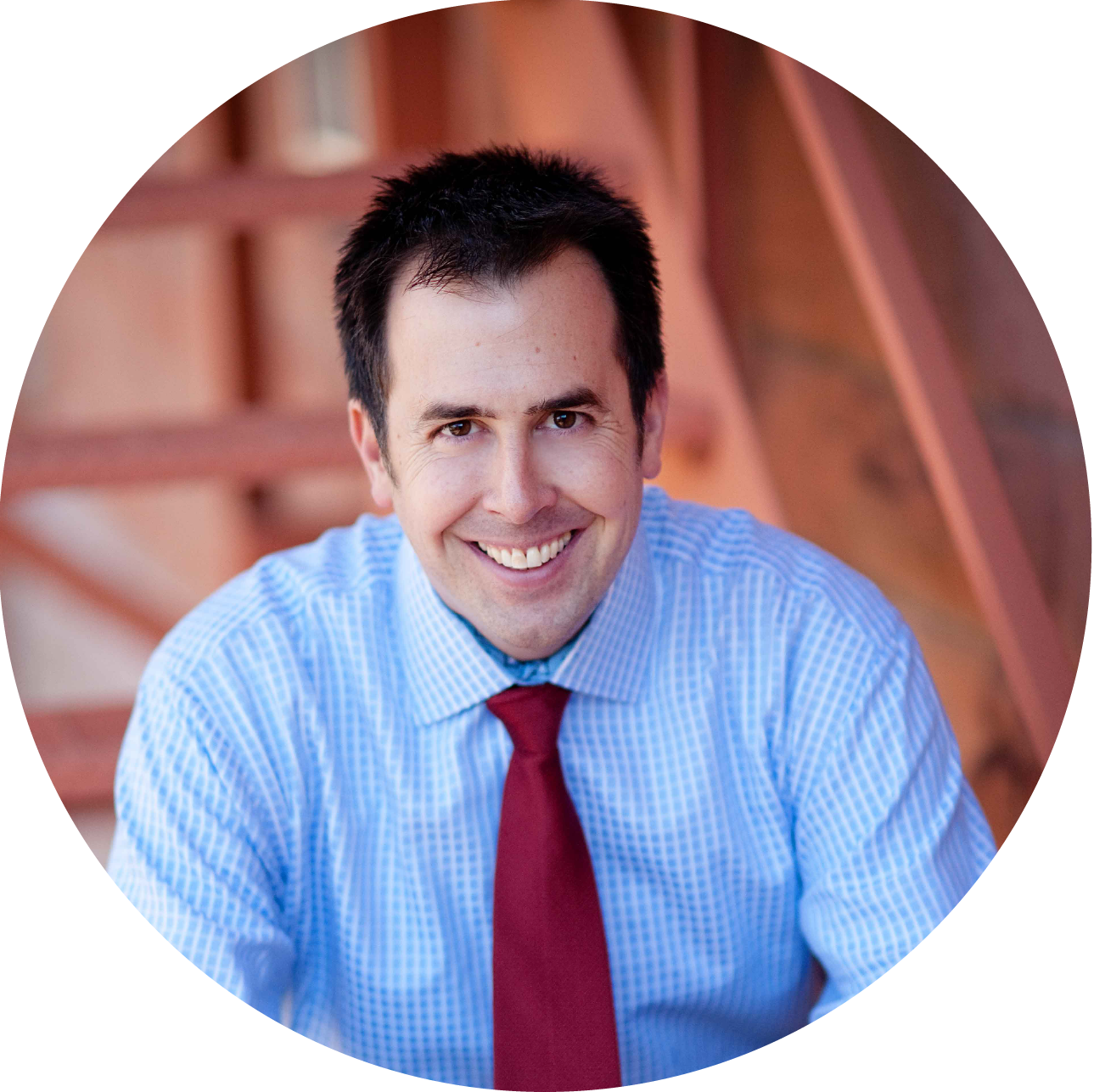Ethics Blog Virtue of the Week Series
Week #1: Courage
Do you desire authentic happiness – the kind where you wake up joyful and possess a heart filled with peace and contentment? Are you interested in treating people better (even the mean ones) or mending some broken relationships (even the ones you didn’t break)? Do you struggle often with how to make the right call in the face of fear or moral uncertainty? I do! I want more happiness, contentment, healed friendships, and courage to navigate tough times . . . desperately! If you want more of this as well, you’ve come to the right place.
Every week on the Ethics Blog we will cover the Virtue of the Week! If you think that a Virtue of the Week sounds as nerdy a topic as humanly possible. . . you would be correct. However, it’s nerdy in a wonderful way. Work with me here. We are going to do the kind of thinking that can actually make you a better and happier person, the kind of attitude adjusting we should undertake continually. Let’s “nerd it up” for the greater good.
If you missed the intro to this series last week, please click the blue box below. Otherwise, jump over it and keep reading.
New to virtue-seeking? / Click here
What in the World Is A Virtue?
The concept of virtue-seeking found prominence with one of the world’s greatest philosophers, Aristotle. He talked a great deal about people becoming virtuous in order to live what he called the Good Life. This is the type of existence where one lives in a state of overflowing happiness (in Greek, eudaimonia). To Aristotle, finding overflowing happiness, or flourishing, is every rational person’s ultimate goal. In other words, if you are rational, you will seek happiness as the end of all ends. It will drive how you act on a daily basis. If you don’t agree, Aristotle would likely say that you are acting irrationally.
But, bluntness aside, in this case Aristotle is: (1) totally arrogant, (2) absolutely correct, or (3) maybe both. After speaking with hundreds of thousands of people in audiences nationwide over the past twelve years, I’ll go with option #2. Through my travels, I have found that most everyone desires happiness as their ultimate goal. They tell me that there is nothing greater to yearn for; happiness is ultimate to most everyone.
Think about your life. Why do you do the stuff you do every day? I’d bet dollars to doughnuts that you do what you do primarily to be authentically happy. Let’s elaborate. Why do people dedicate themselves to their work? I think we work so hard because doing good in our careers fulfills us and being fulfilled makes us authentically happy. Why do we get married, have kids, travel, and hang out with family and friends? I would venture that uniting in love, watching kids discover the world, globetrotting, or hanging out with loved ones makes us really, really happy. The truth is, once we’re happy in this way, we don’t wait for something else better or grander to more pleasurable to happen. We don’t need that. Happiness is not a stepping stone. It’s the ultimate goal, the end of the road. So, it appears that Aristotle is right. Go figure! J
If you agree so far, then let’s come up with a blueprint to figure out what virtues are and how to pursue them appropriately. On this front, I have some good news and some bad news. The good news is that discovering virtues is the easy part; it’s actually amazingly intuitive and simple. The bad news is that habitually acting in accordance with each virtue is tedious and hard – like most stuff in life worth doing. So, let’s start with the easy part. How do you spot a virtue?
A virtue is a character trait that the vast, vast majority of people inherently consider to be good. They need not think deeply to decide; it’s obvious.
The Ciocchetti Airport Test
You can use the so-called (by me only I think) Ciocchetti Airport Test to come up with a list of virtues that fit this definition. This wonderfully-named thought experiment works like this. Imagine you went to any airport anywhere around the world, tapped a random person on the shoulder, and asked, “Excuse me. Is it good to be honest?” Everyone you ask is very, very likely to say yes. The same thing would happen if you asked a different person about whether it’s good to be compassionate or courageous. We humans just tend to agree that these traits are good things to possess. And no one you ask needs to do a lot of research to come to these conclusions. We each just feel that these things are inherently good and say so. This makes them virtues.
Let’s look at the flip side of the coin. You would likely get a different reaction if you asked random people at airports across the globe if it’s good to be wealthy. Some people would definitely say yes, others no. Some might think about it for a long while, shrug their shoulders and remain confused. That response doesn’t mean that there is anything wrong with wealth. It just means that wealth is not a virtue because we all don’t inherently agree that it’s an inherently good to possess.
We’ve Identified Virtues . . . Now What
Armed with a list of virtues, you now need to incorporate them into your life. Remember, this is the hard part. It’s not good enough just to think about being a good person. You must also act on those thoughts in order to flourish. So, you should live every day by practicing more honesty, compassion, and courage. You should make these virtues habits and constantly try to hone them while at the same time eliminating vices such as envy, greed, meanness. As you do this, says Aristotle, you will become more and more virtuous and, thereby, happier and happier. That sounds like a great plan. So, what’s the hold up? Why don’t more people do this all day long? There are a few key roadblocks:
We tend to default to the easier path in life. I call this the Moral Minimum. For example, most times, it’s easier to lie than tell the truth. It’s generally easier to be mean and hold grudges than it is to swallow our pride and be compassionate. It tends to be much easier to act cowardly than it is to muster courage in scary situations. So, that’s what we pick . . . because it’s easier.
Becoming a good person takes practice. We are good at buying-in, for a time. After hearing my speeches, people are excited to try this out. I’m good at motivating people for an hour. Then . . . life gets in the way and we find it’s tiresome and tedious to consistently seek virtues. We don’t have a ton of support for this from our families and friends and our plates are full.
Finally, we don’t see results right away. Becoming a good person is like obtaining a chiseled physique – it takes a great team of time, energy, and attention. We want results now and this just doesn’t work that way.
This stuff is hard. But, I encourage you to still try. Overcome these roadblocks because the reward is worth it – overflowing happiness. Come on, that’s a least worth a try! If you’re with me, here are the next steps.
The Golden Mean
Here is the last part of the theory, the link that ties it all together. We’ve established what virtues are and how hard it is to turn them into habits. But, how do we know if we’re doing it right when we try to be better people? That answer rests in the Golden Mean – the place between each virtue’s deficiency and excess. Think about it like this: people possess every virtue imaginable. We all have some loalty, dependability, friendliness, patience, etc. So, that’s good. It’s not like we start from a blank slate. The problem is that we possess too much of some virtues and too little of others. These are the excesses and deficiencies that cause us unhappiness.
Take honesty, for example. Someone possessing too little of the virtue of honesty is a liar. Right? This isn’t a trick question. Would you say that the world has too many liars? Me too! Are you one of them? If so, stop lying so much. Philosophy! It’s not that hard.
On the other extreme lies bluntness, a vice that represents an excess of honesty. Blunt people hurt people with their harsh words. I am nore blunt than I am a liar. But, I need not start lying to even it out. This isn’t math. I repeat, this is not math. By lying to try and cancel out your bluntness, you will be miserable.
Instead, blunt people like me need to bite our tongues more often. We must stop hurting people with snarky and mean comments. This moves us closer to the Golden Mean of honesty. And on and on it goes with every virtue. Seeking the Golden Mean is what we will cover on Saturdays going forward. We will choose key virtues and discuss how to avoid their extremes. Sound fun? Tune in and see for yourself.
Let’s Define Courage
Courage is “the mental or moral strength to venture, persevere, and withstand danger, fear, or difficulty.” Relevant synonyms are mettle, resolution, or tenacity. During my Merriam-Webster search, I discovered that courage is in the Top 1% of word lookups – out of over 470,000 words! It appears that courage is immensely popular. Well, those numbers show that it’s at least popular to think about courage. My hope is that it becomes more popular to act with courage as well. Courage should indeed be in the Top 1% of virtues we seek. You are about to see why.
My Favorite Definition of Courage
I like to supplement the dictionary with more colorful definitions of important words like courage. The author Joyce Meyer presents my favorite translation: “Courage is fear that has said its prayers and decided to go forward anyway.” That sentence encapsulates the concept of courage perfectly. Courage is not the absence of fear; it’s just the opposite. In fact, you can’t have courage without fear. I believe that courageous people are filled with fear from beginning to end of the struggle, but, for some reason, decide to engage anyway. George R.R. Martin described this idea well in his Game of Thrones series:
Bran thought about it. “Can a man still be brave if he’s afraid?’”
“That’s the only time a man can be brave,” his father told him.
So, it’s okay to be afraid. Isn’t that refreshing? Think of fear as your chance to demonstrate courage. And, to be honest, would you really want to live in a world where nothing scares you, where there are few obstacles to overcome? I wouldn’t. The bottom line is that I want some stuff in my life to be scary, so I can practice being courageous. Acting with courage (and overcoming my fears in the process) feels wonderful.
Here are some other key concepts to ponder when it comes to courage:
- Courage is a meta virtue – meaning that it drives the other virtues. Without courage, it’s tough to be honest and impossible to speak truth to power. Without courage, it’s hard to be compassionate and impossible to swallow pride and forgive. There is also no doubt that our communities desperately need each of us to muster more courage, more often. Anais Nin has brilliant way to look at the primacy of courage: “Life shrinks or expands in proportion to one’s courage.”
- Courageous people still lose some battles – courage is just the state of mind it takes to enter the battle and fight valiantly. Being courageous doesn’t ensure a victory. With that in mind, however, you lose 100% of the battles you don’t fight. Courage gives you a puncher’s chance in any endeavor . . . and sometimes entering the arena in life what matters most. The philosopher, Soren Kierkegaard wrote about this aspect of courage, “To dare is to lose one’s footing momentarily. To not dare is to lose oneself.”
- Courage produces pride & confidence – we feel exceedingly proud when we act courageously. Courageous behavior also builds our confidence. An act of courage makes us more likely to act courageously the next time we encounter a scary situation. It’s like we build up our stamina for courage in the same way a runner builds stamina every day on the track. And, this is Aristotle’s whole point. Habitually practice courage and you will become more courageous. Mark Twain remarked on the confidence created by courage when he wrote, “It’s not the size of the dog in the fight; it’s the size of the fight in the dog.”
- Courage is contagious – courageous people inspire us to be more courageous. We see others overcome their fear and that stirs something inside of us. This is why we love action movies where a courageous hero saves the day. Our heroes make us want to be better versions of ourselves, to fight for what matters in life . . . even at great cost. Ralph Waldo Emerson captured this concept well: “A hero is no braver than an ordinary man, but he is braver five minutes longer.”
- Courage allows us to become better – it takes courage to sit down, think about our flaws, and then try and fix them. For me, it’s hard to say to myself, “Corey you are too impatient and too arrogant at times. You need to listen better. You need to care about other’s concerns. You need to be less selfish.” It’s even harder without courage to move myself back to the Golden Mean of patience, humility, compassion, empathy, etc. Self-reflection is hard, but it’s impossible without courage. On this aspect of courage, Bruce Lee is right on point: “Mistakes are always forgivable if one has the courage to admit them.”
- Courage allows us to protect others & stand up for what’s right – it takes courage to stand up for people in tense and difficult situations. This is especially true when you lack power – think physical power, mental power, workplace status, etc. Whenever I think about this aspect of courage, I first think about standing up to a bully on behalf of someone else or protecting a child from harm. But, my mind wanders to the workplace. It takes courage to stand up to a superior when a co-worker’s good ideas are consistently dismissed, when a group is marginalized, or when someone is being badly mistreated. In fact, over my years as an employee, I’ve witnessed very little courage when this happens. It makes me sad, but it also steels my resolve to stand up for my colleagues as courageously as I can. However, it seems like every time I’ve stood up for someone or something important at work, it has cost me. The boss gets mad (sometimes publicly) and I lose something like an award, a larger raise, or a chance for a promotion. I can say that, after acting courageously at work and losing stuff, I’m not sure I’d take it back. In other words, my courage was worth it. It’s always worth it. Maggie Kuhn said it best, “Speak your mind, even if your voice shakes.”
Courage & The Golden Mean
With these key concepts about courage in mind, let’s move to evaluating our courage. We will use Aristotle as our guide. I talk a lot about Aristotle on this ethics blog and that’s because I resonate with his thoughts on virtues and living the good life. I think he’s right on point on what it takes for a person to be authentically happy. Recall that Aristotle claimed that we should seek to be virtuous as often as possible. We should practice virtues like courage, honesty, compassion, loyalty, etc. every day and move away from vices like envy, greed, selfishness. In doing so, we must seek the Golden Mean of every virtue and avoid its deficiency and excess.
So, for courage we must be courageous but not cowardly (a deficiency of courage) or reckless (an excess of courage). We will discuss both in turn.
Deficiency of Courage or Cowardice
Do you think there are too many cowardly people in the world? Are you one of them? Ouch. These questions hurt, Corey. I know. What’s new in this forum. Let me be more specific and see if that helps you categorize yourself as more cowardly than you desire.
Aristotle claimed that courage is a key virtue and that we should habitually seek it. That means we must act courageously even when we don’t want to or are scared (see above). People who don’t habitually act with courage fall on the cowardly side of the Golden Mean. This isn’t necessarily a bad thing in and of itself. But, what cowardice will do is keep you from being authentically happy. The move towards happiness requires that you recognize your cowardice when it arises and then strive to be more courageous.
Here are some questions to ask yourself to help make this call:
- Confucius said, “To see right and not do right is cowardice.” QUESTION: How often do you see something unethical or otherwise bad going on and then fail to act? I’ve failed to do anything on many an occasion and it is a form of cowardice. The idea is to see right and then do right, every time. This is the sign of a truly courageous person.
- George Jackson said, “Patience has its limits. Take it too far, and it is cowardice.” QUESTION: How often do you wait, and wait, and wait to see if a situation resolves itself before you act? This sweep it under the rug approach to conflict is unhealthy and justifying inaction under the flag of patience is another form of cowardice.
- Joseph Lightfoot remarked, “God did not give you the spirit of cowardice.” This is so good. Being courageous is innate in human beings. Cowardice is not. If you don’t believe me, watch a little kid practice any sport. When a kid falls down, she gets right back up. Kids try again when stuff is hard. Adults tend to give up. Since we are not born with a spirit of cowardice, that means that we act against our nature when we let fear dominate our life. QUESTION: Do you ever sense that you work against your own nature when you let fear dominate your decisions?
If you are unhappy with your answers to these three questions, you likely have a deficiency of courage. That’s ok, because the rest of us are reckless as we will see shortly. But, for you in this category, you must overcome your fear and move towards the Golden Mean more often to truly be happy. Practice makes perfect, so get moving towards the Golden Mean. That’s the place to be!
Excess of Courage or Recklessness
You can also be too courageous. This is recklessness. We see this all the time in the world around us. These are the people who swim with sharks or ride a motorcycle without a helmet. It might seem like courage, but these are reckless acts, they are too courageous. They are too fraught with danger and the likelihood of being injured is high. People stand a high risk of really getting hurt.
Do you fall on the reckless end of the spectrum for courage? Here are some questions to ask yourself to help make this call:
- The great philosopher, Angelina Jolie said, “I’ve been reckless, but I’m not a rebel without a cause.” This mantra sounds awesome at first glance. But, dive in a bit and you’ll see the problem. You can have all the goals in the world but acting recklessly to achieve them will do more harm than good. You will get injured. You will lose something you value – your health, your money, your reputation. QUESTION: How often do you justify your recklessness by claiming you act on behalf of an important cause in your life? Being courageous for your chosen causes does not require you to act recklessly. You must find a balance of trying hard and pulling back before you go off the cliff. Tomorrow is another day to further your cause.
- John Krakauer said, “When I was 23, I went to Alaska by myself into the glaciers of the coast range and climbed a mountain by myself. It was incredibly reckless, incredibly stupid. But I was lucky. And I survived, and I came back to tell my story.” QUESTION: How often do you rely on luck to get you through situations where you act recklessly? This is the Bon Jovi theory of life in action . . . you know, “Livin’ on a Prayer.” That’s a great song but terrible life advice. Having courage as it’s supposed to look doesn’t force you to rely on luck to avoid injury or get back safe.
- Roger Ebert said, “It is reckless to make broad generalizations about any group of people.” Part of what ails our society today is the reckless stuff we say about each other – in person, on social media, etc. These comments are hurtful, to be sure, but they also indicate that our position may have flaws. We go to the extremes and call it courageous. It’s actually reckless. What takes courage is to listen to the positions of the other side and then decide where you stand. It’s courageous to change your views on something important.
If you are unhappy with your answers to these three questions, you likely have an excess of courage. To be happy, you must hold back before acting and move towards the Golden Mean of this key virtue.
Courage . . . Find Some
The moral of this story is as follows: please let some courage find its way into your life this week. That’s the whole point of the Virtue of the Week exercise. I want you to identify which side of the Golden Mean you tend towards for the virtue of courage and then work on getting back to the middle. I want the more cowardly of us in the audience to overcome some fear this week. Stand up for yourself or someone else. Be brave. And, I want the rest of us more reckless folks to take a breath and contemplate whether we are being too courageous when we act. Do this for each major decision you make this week. This might be biting our tongues when someone is mean to us or letting people cut us off in traffic without losing it.
Finally, remember, seeking the Golden Mean is not math. You can’t remedy cowardice by being reckless. This will not move you to the Golden Mean like it might in a math equation. Do that and you’ll be even more miserable. Instead, just work on moving to the middle – slowly and surely. Because that’s where you heart wants to be anyway. And, on that note, a perfect way to end is with a famous C.S. Lewis saying, “Courage, dear heart.” Courage, indeed.
- Check out COREYSPEAKS.COM for more on popular keynote speaker Corey Ciocchetti. Corey has keynotes on happiness, integrity, ethical leadership, ethical decision-making, morale, stress reduction, and professionalism. Corey has spoken in 44 states and over 250 cities since 2007.
- Check out Corey’s other cool ethics blog posts on LEADERSHIP and HAPPINESS – you won’t regret it.
- Corey’s new book, INSPIRE INTEGRITY: CHASE AN AUTHENTIC LIFE is available now!





